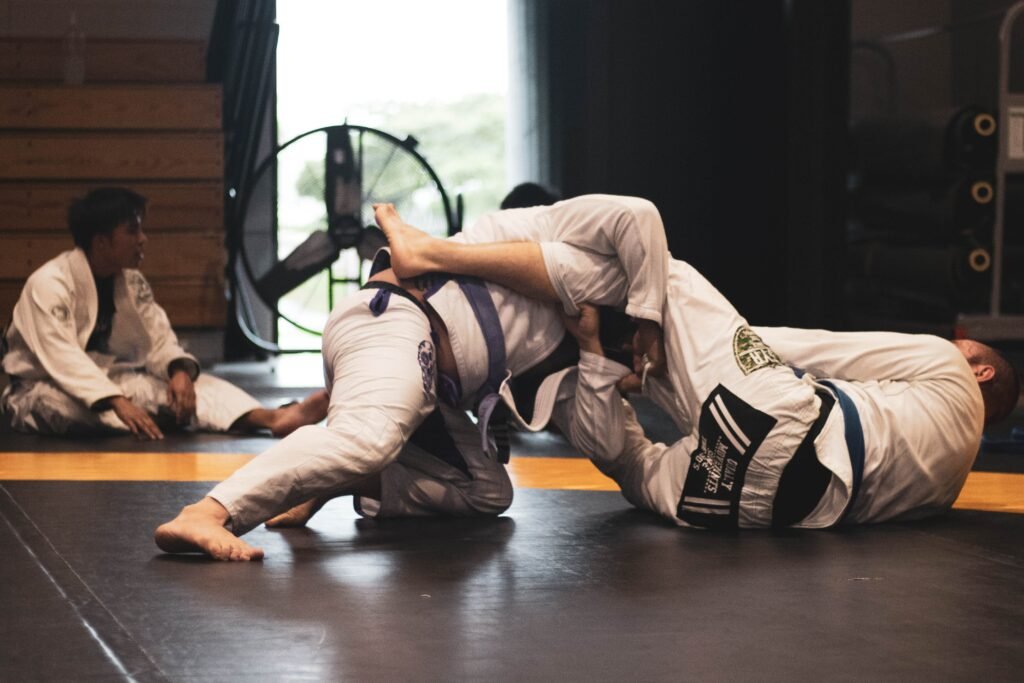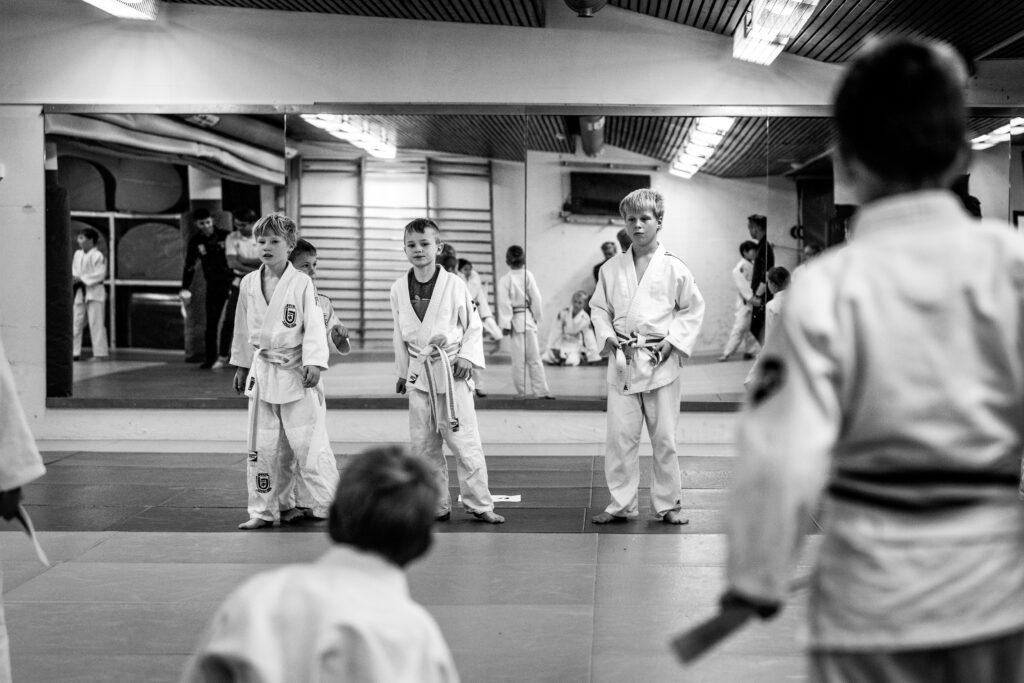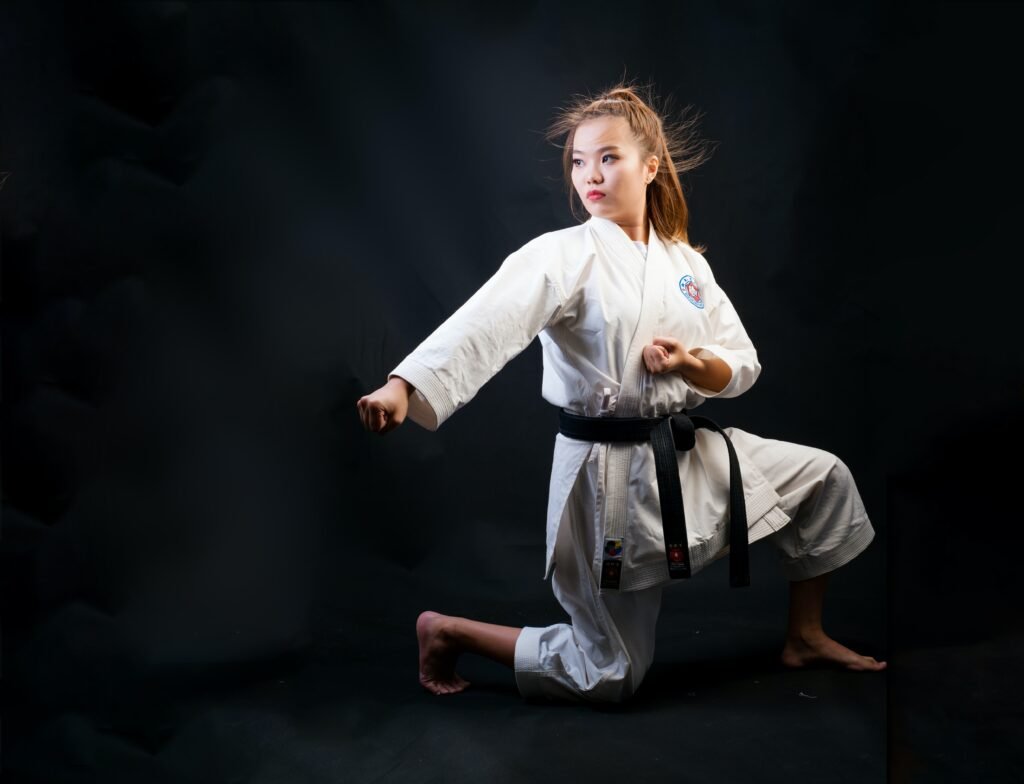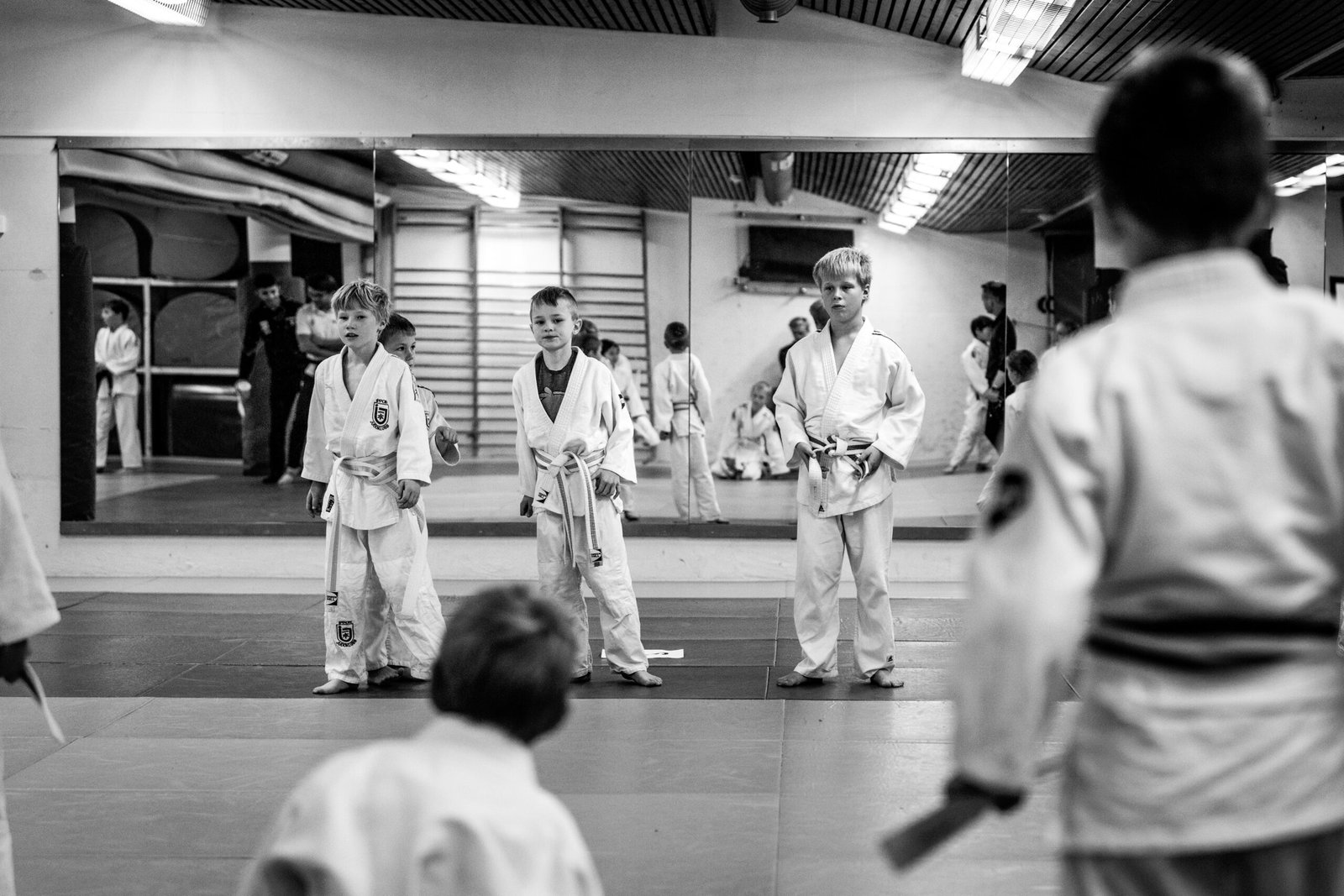In this article, we will explore the fascinating world of martial arts and uncover the answer to the intriguing question, "How many martial arts are there?" With numerous styles and disciplines originating from different countries around the globe, martial arts offer a diverse and rich array of practices. Whether you are interested in traditional forms like karate and kung fu, or more contemporary styles such as muay thai or Brazilian jiu-jitsu, there is undoubtedly a martial art out there suited to your interests and goals. So, join us as we embark on this exciting journey to discover the vast and vibrant universe of martial arts.
Traditional Martial Arts
Karate
Karate is a traditional martial art that originated in Okinawa, Japan. It focuses on striking techniques such as punches, kicks, knee strikes, and elbow strikes. Karate places great emphasis on discipline, self-control, and respect. Practitioners also learn various blocks, forms (katas), and self-defense techniques.
Taekwondo
Taekwondo is a Korean martial art that primarily focuses on high kicks and fast-paced movements. It incorporates elements of self-defense, patterns (forms), sparring, and board breaking. Taekwondo promotes physical fitness, mental discipline, and sportsmanship.
Kung Fu
Kung Fu is a Chinese martial art that encompasses a wide range of fighting styles. It emphasizes fluid movements, kicks, punches, throws, joint locks, and meditation. Kung Fu is known for its distinctive animal-inspired forms and various weapons training, such as the staff, sword, and nunchaku.
Judo
Judo originated in Japan and is based on the principles of maximum efficiency and minimum effort. It focuses on throws, pins, joint locks, and chokes. Judo also incorporates groundwork and emphasizes using an opponent's energy against them. It promotes balance, flexibility, and respect for one's training partner.
Aikido
Aikido is a Japanese martial art that emphasizes blending with an opponent's attacks to redirect their energy. It utilizes joint locks, throws, and pins to neutralize aggression without causing excessive harm. Aikido fosters a calm and peaceful mindset, promoting self-development and harmony with others.
Modern Martial Arts
Krav Maga
Krav Maga is a self-defense system developed in Israel. It focuses on practical techniques for real-life situations, incorporating strikes, kicks, grappling, and defensive tactics against armed attackers. Krav Maga trains individuals to respond quickly and effectively in potentially dangerous encounters.
Brazilian Jiu-Jitsu
Brazilian Jiu-Jitsu (BJJ) is a grappling-based martial art that originated in Brazil. It emphasizes ground fighting and submissions, using leverage and technique to overcome larger opponents. BJJ promotes physical fitness, problem-solving, and self-confidence.
Muay Thai
Muay Thai, also known as the "Art of Eight Limbs," originated in Thailand. It combines punches, kicks, knee strikes, and elbow strikes. Muay Thai practitioners develop strength, endurance, and devastating striking techniques. It is widely practiced as a combat sport.
Capoeira
Capoeira originated in Brazil and combines elements of martial arts, dance, acrobatics, and music. It is characterized by fluid movements, kicks, sweeps, and spins. Capoeira practitioners develop agility, flexibility, and coordination through the rhythmic flow of the art.
Kickboxing
Kickboxing is a hybrid martial art that combines elements of boxing and karate. It focuses on punches, kicks, knee strikes, and footwork. Kickboxing promotes cardiovascular fitness, strength, and self-defense skills.

Indigenous Martial Arts
Silat
Silat is a Southeast Asian martial art practiced in countries like Indonesia, Malaysia, and the Philippines. It encompasses a wide range of styles and techniques, including strikes, joint locks, and throws. Silat emphasizes fluidity, versatility, and practicality.
Eskrima
Eskrima, also known as Kali or Arnis, is a Filipino martial art that focuses on weapon-based fighting using sticks, knives, and improvised weapons. It also includes empty hand techniques, footwork, and grappling. Eskrima practitioners develop coordination, precision, and adaptability.
Kalaripayattu
Kalaripayattu is an ancient martial art from the Indian state of Kerala. It incorporates strikes, kicks, grappling, and weaponry. Kalaripayattu practitioners demonstrate exceptional flexibility, strength, and balance. The art also includes healing techniques and physical conditioning exercises.
Capoeira Angola
Capoeira Angola is a style of capoeira that preserves the traditional aspects of the art. It emphasizes fluid movements, low kicks, ground-based techniques, and the integration of music and song. Capoeira Angola practitioners foster a deep understanding of rhythm, timing, and cultural heritage.
Sambo
Sambo is a Russian martial art that combines elements of wrestling, judo, and striking. It focuses on throws, joint locks, chokes, and pinning techniques. Sambo practitioners develop versatility, adaptability, and a well-rounded skillset for both self-defense and sport.
Weapon-Based Martial Arts
Kendo
Kendo is a Japanese martial art that uses bamboo swords (shinai) and protective armor. It emphasizes discipline and respect while practicing strikes, footwork, and positioning. Kendo practitioners develop focus, spirit, and the ability to move fluidly in combat.
Fencing
Fencing is a European martial art that involves duels with bladed weapons, such as rapiers or foils. It prioritizes speed, accuracy, and strategy. Fencing enhances agility, reaction time, and mental alertness.
Arnis
Arnis, also known as Eskrima or Kali, is a Filipino martial art that focuses on weapon fighting using sticks, knives, and other bladed objects. It also incorporates empty hand techniques, footwork, and grappling. Arnis practitioners develop coordination, adaptability, and versatility in combat.
Kenjutsu
Kenjutsu is a Japanese martial art that specifically focuses on sword fighting techniques. It incorporates different styles and schools of swordsmanship, emphasizing cutting, thrusting, and parrying. Kenjutsu cultivates discipline, concentration, and a deep understanding of the sword.
Haidong Gumdo
Haidong Gumdo is a Korean martial art that primarily focuses on sword fighting techniques. It emphasizes cutting, drawing, and blocking with the sword. Haidong Gumdo practitioners develop precision, control, and mental fortitude.

Grappling Martial Arts
Wrestling
Wrestling is a competitive sport and martial art that involves grappling techniques such as takedowns, holds, and pins. It requires strength, agility, and technical skill. Wrestling develops physical fitness, discipline, and mental toughness.
Jujutsu
Jujutsu, often spelled as Jiu-Jitsu, is a martial art that originated in Japan. It emphasizes ground fighting, joint locks, and chokes. Jujutsu practitioners learn to use an opponent's strength and energy against them, making it an effective self-defense system.
Catch Wrestling
Catch Wrestling originated in the United Kingdom and focuses on joint locks, pins, and submissions. It combines techniques from various grappling styles, including elements of Jujutsu and wrestling. Catch Wrestling practitioners develop strength, timing, and submission skills.
Luta Livre
Luta Livre is a Brazilian martial art that specializes in submission grappling without the use of a traditional uniform, such as a gi. It focuses on takedowns, ground transitions, and submissions. Luta Livre practitioners develop agility, flexibility, and a strong ground game.
Pankration
Pankration was a brutal martial art and combat sport in ancient Greece. It combined elements of boxing and wrestling, allowing strikes, kicks, chokes, and joint locks. Pankration practitioners trained for both self-defense and sport, requiring physical conditioning and tactical awareness.
Striking Martial Arts
Boxing
Boxing is a combat sport that focuses on punches and footwork. It emphasizes skill, technique, and conditioning. Boxing promotes cardiovascular fitness, coordination, and mental resilience.
Muay Thai
Muay Thai, also known as Thai boxing, is a striking martial art from Thailand. It utilizes punches, kicks, knee strikes, and elbow strikes. Muay Thai practitioners develop power, endurance, and devastating striking techniques.
Karate
Karate, already mentioned as a traditional martial art, also falls under the striking category. It emphasizes punches, kicks, knee strikes, and elbow strikes. Karate practitioners develop precision, speed, and discipline.
Taekwondo
Taekwondo, already mentioned as a traditional martial art, is also considered a striking martial art. It focuses on high kicks, rapid strikes, and dynamic movements. Taekwondo practitioners develop flexibility, agility, and explosive power.
Capoeira
Capoeira, already mentioned as a modern martial art, also falls under the striking category. It combines fluid movements, kicks, sweeps, and spins. Capoeira practitioners develop agility, strength, and a unique blend of strikes and acrobatics.

Mixed Martial Arts (MMA)
Brazilian Jiu-Jitsu
Brazilian Jiu-Jitsu, already discussed as a modern martial art, is a dominant component of mixed martial arts (MMA). Its focus on ground fighting and submissions makes it a valuable skill for MMA fighters.
Muay Thai
Muay Thai, already mentioned as a modern martial art and a striking martial art, is another essential component of MMA. Its powerful strikes and clinch techniques contribute to an effective stand-up game in the MMA arena.
Wrestling
Wrestling, already described as a grappling martial art, plays a crucial role in MMA. The ability to control an opponent's movement, perform takedowns, and defend against ground attacks gives wrestlers a significant advantage.
Boxing
Boxing, a well-established sport and martial art, is also a fundamental skill in MMA. The ability to throw accurate punches, defend against strikes, and maintain distance is essential in the ring or octagon.
Judo
Judo, previously discussed as a traditional martial art, is often utilized in MMA due to its throwing techniques and groundwork. Judo practitioners can control opponents, set up submissions, and effectively transition between positions.
Self-Defense Systems
Krav Maga
Krav Maga, already mentioned as a modern martial art and a self-defense system, is highly regarded for its practical and effective techniques in real-life scenarios. It teaches individuals to respond to threats and attacks quickly and decisively.
Systema
Systema is a Russian self-defense system emphasizing fluid movements, relaxation, and adapting to any situation. It incorporates strikes, joint locks, and disarming techniques. Systema practitioners cultivate awareness, calmness, and self-control.
Jeet Kune Do
Jeet Kune Do, created by the legendary Bruce Lee, is a self-defense system that emphasizes simplicity, directness, and adaptability. It combines techniques from various martial arts, removing unnecessary movements and focusing on efficiency.
Keysi Fighting Method
The Keysi Fighting Method (KFM) is a self-defense system that utilizes close-quarter combat techniques, focusing on street scenarios and multiple attackers. It emphasizes natural body movements, defending critical targets, and using environmental advantages.
Defendo
Defendo is a Canadian self-defense system that combines elements of judo, jujutsu, boxing, and wrestling. It emphasizes practical techniques for real-life situations, including strikes, takedowns, and defenses against armed attackers.
Sport Martial Arts
Judo
Judo, already mentioned as both a traditional martial art and a self-defense system, is also a recognized sport martial art. It involves throws, pins, and joint locks, with competitive matches governed by international regulations.
Taekwondo
Taekwondo, earlier described as both a traditional martial art and a striking martial art, is also popular as a competitive sport. It includes patterns (forms), sparring, and board breaking, with organized tournaments held at various levels.
Boxing
Boxing, already mentioned as a striking martial art, is a widely recognized and practiced sport martial art. It features regulated matches between opponents using punches and defensive techniques within established boxing rules.
Wrestling
Wrestling, already discussed as a grappling martial art, is a sport martial art practiced around the world. It involves competitive matches between individuals aiming to outmaneuver, pin, or score points against their opponents.
Muay Thai
Muay Thai, previously described as both a modern martial art and a striking martial art, is also a competitive sport. It is a popular combat sport with standardized rules and tournaments held globally.
Historical Martial Arts
Hapkido
Hapkido is a Korean martial art influenced by various styles, including Japanese jujutsu and Chinese martial arts. It involves strikes, kicks, joint locks, throws, and pressure point attacks. Hapkido prioritizes redirecting an opponent's energy through fluid movements and efficient techniques.
Bartitsu
Bartitsu is a hybrid martial art that originated in England during the late 19th and early 20th centuries. It combines elements of boxing, jujutsu, fencing, and cane fighting. Bartitsu practitioners learn to use their entire body, various weapons, and their environment for self-defense.
Bujinkan
Bujinkan is a Japanese martial art that encompasses nine different traditional schools, known as ryuha. It incorporates striking, joint locks, throws, and ground fighting. Bujinkan practitioners learn to adapt to different combat situations and develop a well-rounded skill set.
Viking Martial Arts
Viking Martial Arts, also known as Viking Age Combat, is inspired by historical Norse warfare techniques. It includes weapons training with swords, axes, and shields, as well as unarmed combat techniques. Practitioners of Viking Martial Arts study and reconstruct the fighting methods of the Viking warriors.
Medieval European Martial Arts
Medieval European Martial Arts, also known as Historical European Martial Arts (HEMA), focus on the martial traditions of Europe from the 14th to the 17th centuries. HEMA encompasses various weapons and combat techniques, including longsword, sword and buckler, dagger, and grappling. Practitioners study historical sources to learn the techniques and strategies employed by European warriors of the past.
In conclusion, the world of martial arts is incredibly diverse, offering a wide array of styles and disciplines. From traditional martial arts that have been practiced for centuries to modern systems adapted for self-defense, sport, and competition, there is something for everyone interested in martial arts. Whether you prefer striking, grappling, weapon-based techniques, or a combination of various martial arts, the choices are plentiful. Each style has its own unique characteristics, training methods, and benefits. With dedication, practice, and the guidance of experienced instructors, martial arts can provide a fulfilling journey of self-discovery, physical fitness, and personal growth.














